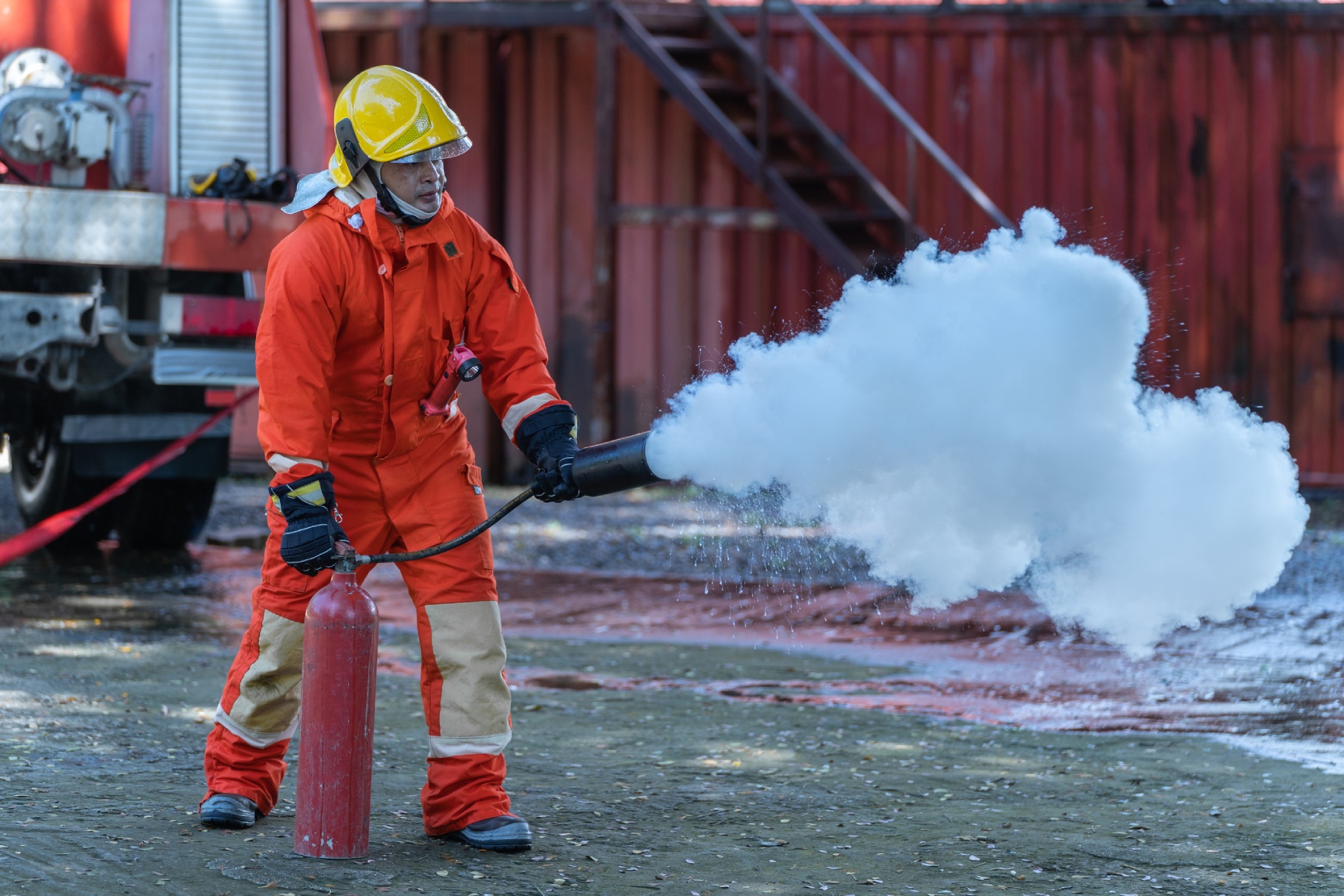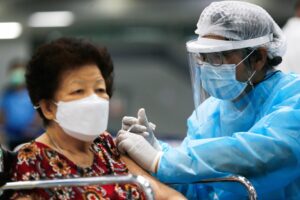Hospitals in Thailand consist of public and private entities, which anyone in Thailand can access. However, newcomers to Thailand mainly receive medical care through private facilities, which accept walk-in patients and offer services and treatments in English.
If you are an international in Thailand, learn about the country’s hospitals in the topics below:
- Hospitals in Thailand
- How do you access hospital treatment in Thailand?
- Where do you access emergency treatment in Thailand?
- Hospital stays in Thailand: what to expect
- Hospital costs in Thailand
- Being discharged from a Thai hospital
- Visiting someone in a hospital in Thailand
- Which are the best hospitals in Thailand?
- Useful resources
Allianz Care
Allianz Care is a world leader in providing international health insurance. Their various premiums provide professionally designed solutions for a variety of expat lifestyles. So, wherever your life takes you, make sure you have the right health protection for you and your family with Allianz Care.
Hospitals in Thailand
Thailand is a hub for medical tourism, with foreigners from many nations enjoying relatively low-cost, high-quality hospital care. There were 1,344 hospitals in Thailand in 2021, with around 3.3 million foreign inpatients admitted in 2017.
Thailand’s hospitals consist of government-run (โรงพยาบาลของรัฐ) and private establishments (โรงพยาบาลเอกชน). Among these are a small number of religious hospitals and premium clinics (enhanced services available in some government hospitals). You will find hospitals that deal with general and specific care for all ages in Thailand, with the most specialist ones in Bangkok and other large cities.
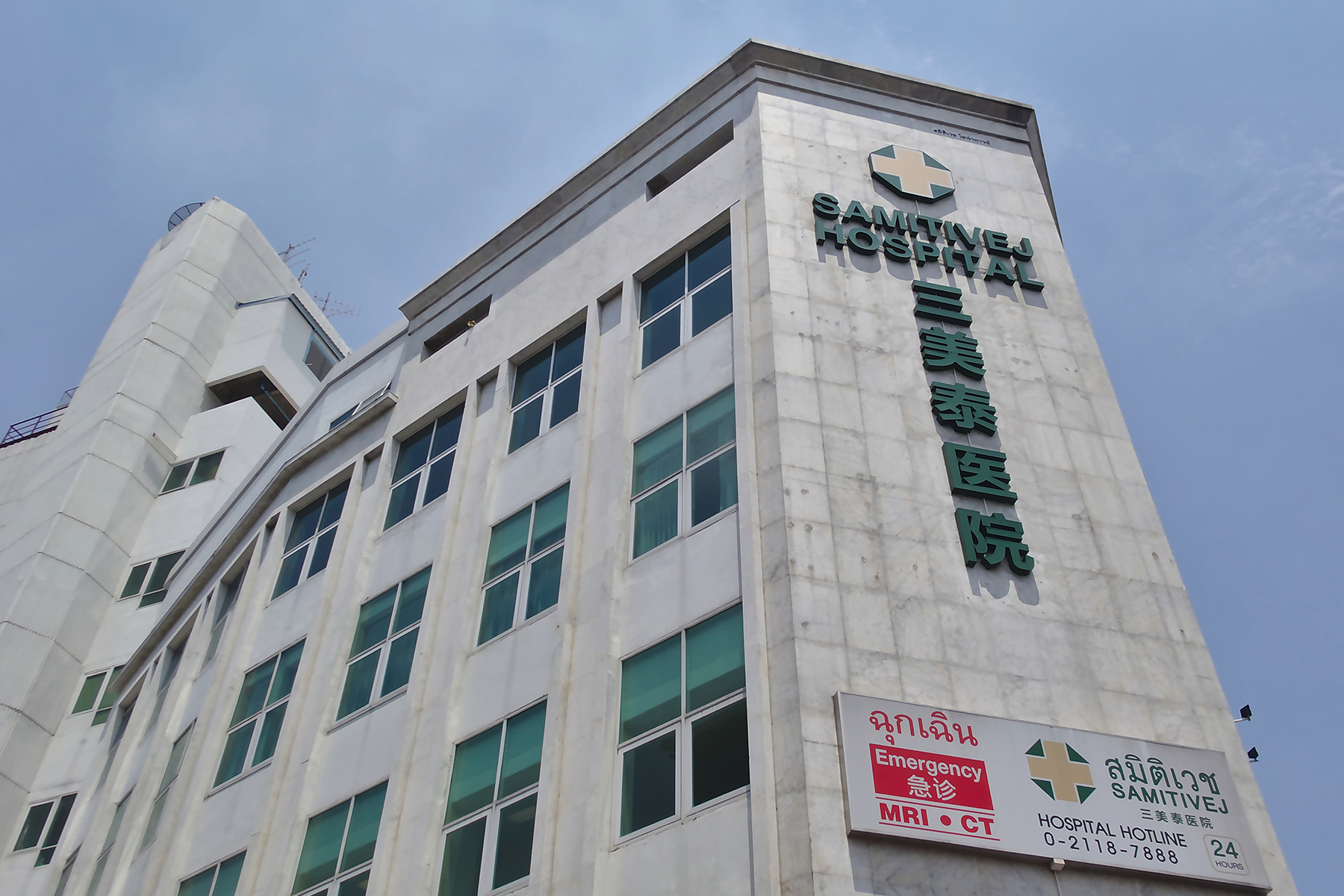
Private hospitals offer the shortest waiting times, a higher probability of English language, and better patient service than public hospitals. Some private hospitals have chats, inquiry forms, and online appointment-making via their websites.
Public hospitals (except in medical emergencies) have long waiting times, limited English language, and specific days to deal with outpatient conditions, such as diabetes, for which specialists see many people in one day. Some government hospitals have introduced online appointments and apps to facilitate bookings and cut waiting times.
Treatments and services
Treatments and services in hospitals in Thailand are comprehensive, with most hospitals equipped in the following areas:
- Cardiology
- Casualties and emergencies
- Ear, nose, and throat (ENT)
- Gastroenterology
- Geriatric care
- Gynecology
- Hematology
- Inpatient (IPD) treatments and services
- Intensive care (ICU)
- Neurology
- Oncology
- Ophthalmology
- Orthopedics
- Outpatient (OPD) treatments and services
- Pediatric care
- Psychiatry
- Surgery, including anesthesiology, general surgery, and cosmetic surgery
- Urology
The quality of care in Thailand is considered world-class – the World Health Organization (WHO) scored the country well in most areas of its healthcare system, including health services provision.
Waiting times
When visiting a Thai hospital, you’ll find the waiting times are the longest at public establishments. That’s because, in public hospitals, those without an appointment or medical emergency must take a queue number early in the morning, sometimes before 07:00, and await an available slot, which can sometimes take several hours.
For surgery, government hospitals may have waiting times of several months. On the other hand, private hospitals can often perform surgery on short notice.
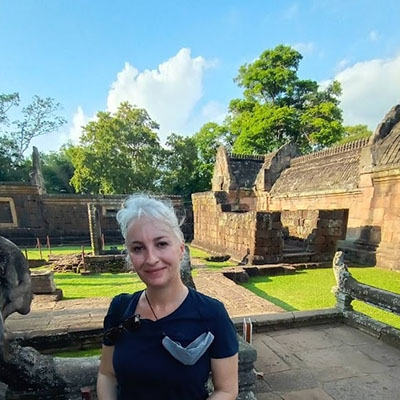
Writer and local expert
Jane Evans
Insider tip
For non-urgent/life-threatening visits, aim to arrive at a government hospital before 06:00 to get a queue number early.
How do you access hospital treatment in Thailand?
Both public and private hospitals are accessible to everybody in Thailand. You don’t need an appointment to see a doctor for the first time in a Thai hospital. Just walk into the hospital reception and request to see a doctor. You may be weighed and have your blood pressure and temperature taken before seeing someone.
You will usually need to provide:
- Identification (usually a passport or ID card)
- Medical insurance details
- Social security card (if you have one)
- Your hospital card (if you have one)
- Information about your condition, medications previously taken, and medical history
If you need urgent attention, a doctor will usually be available to see you as soon as a slot becomes available.
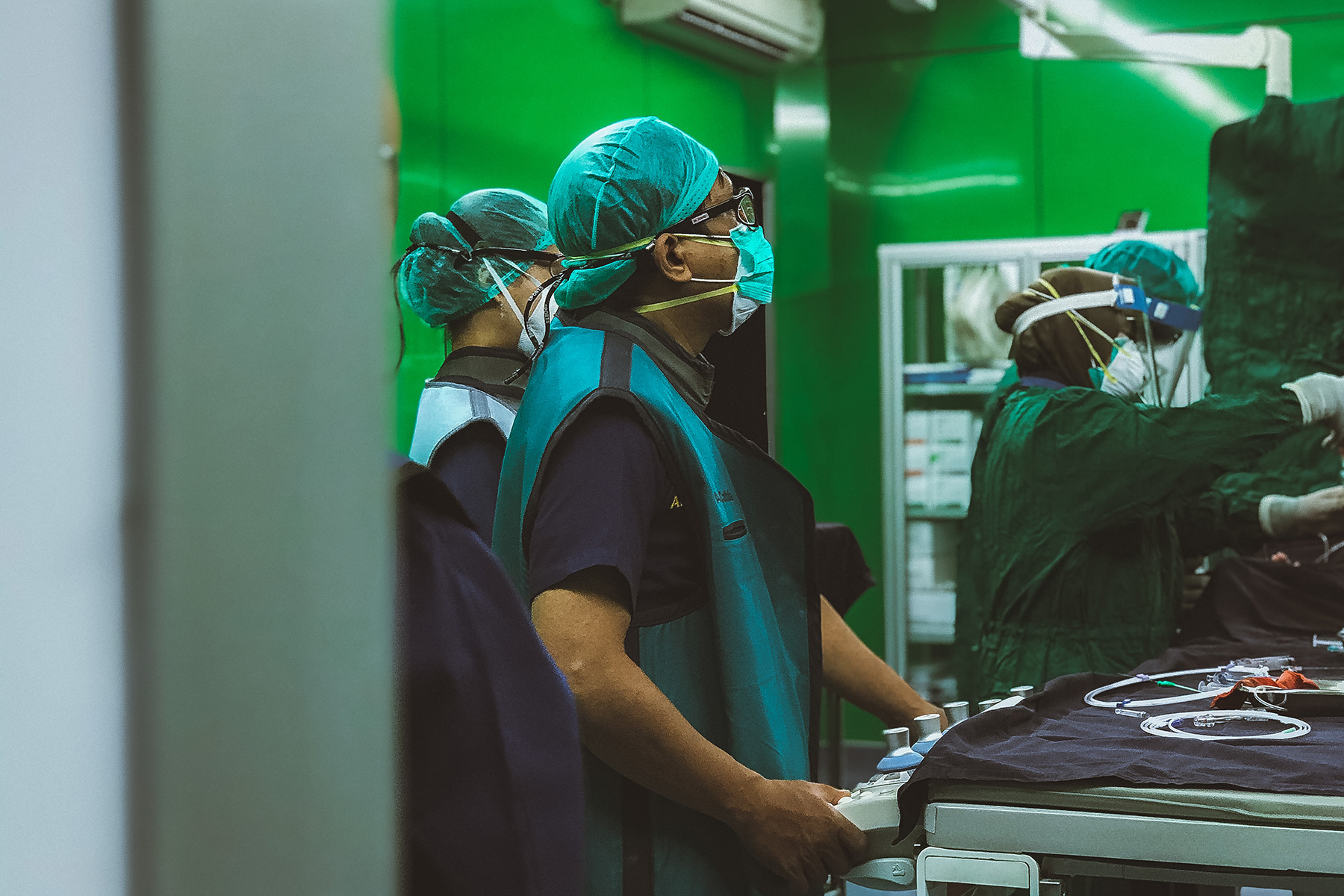
Meanwhile, if you require treatment that the doctor cannot provide, they will refer you to a specialist. This could mean seeing another professional in the same hospital or traveling to a larger one elsewhere. If you visit a hospital with many facilities, you will likely not need a referral.

Writer and local expert
Jane Evans
Insider tip
You will usually be guided throughout your visit to a private hospital. However, it’s possible to get lost (in translation or between departments) in public hospitals due to fewer personnel per patient and fewer English speakers. Taking a Thai speaker with you to a public hospital is advisable.
Where do you access emergency treatment in Thailand?
All hospitals in Thailand have emergency facilities accessible to anyone in need, and the general number to call for medical emergencies is 1669 or 1646 for Bangkok.
If the patient has a preferred hospital, you can call them directly for an ambulance, which will likely incur a cost between ฿1,500 and ฿2,500. Hospital ambulances come with a team of properly-qualified medics.
Thailand also has voluntary emergency responders, which consist of:
- First responders (FRs) – usually volunteers with 24 hours of training
- Basic life support (BLS) – have more training
- Advanced life support (ALS) responders – have the most training.

Writer and local expert
Jane Evans
Insider tip
Thailand has many volunteer emergency responders because they receive financial rewards from hospitals, especially when attending road traffic accidents.
In theory, regardless of nationality, anyone can receive emergency treatment at the nearest Thai hospital within the first 72 hours of the incident. However, in practice, the patient or their family must pay for emergency treatment (unless covered by insurance or social security).
Hospital stays in Thailand: what to expect
The type of stay you’ll have in a Thai hospital depends on where you are in the country and whether you go private or public. For instance, rural public hospitals have basic wards and fewer facilities. Meanwhile, public hospitals in cities have more equipment, with some private rooms, and private hospitals are like hotels that offer healthcare. Of course, costs reflect this.
Most public hospitals do not offer private rooms or air conditioning. Mixed wards may be too busy for a visitor to stay overnight. However, you can ask a nurse for a private room, and they will let you know if one is available.
Shared rooms cost approximately ฿2,000, but private rooms charge more. Bathrooms are basic in public hospitals, often without soap in bathrooms. If you’re used to toilet paper, bear in mind that many hospitals will have a bucket of water and scoop or a personal hygiene spray instead.
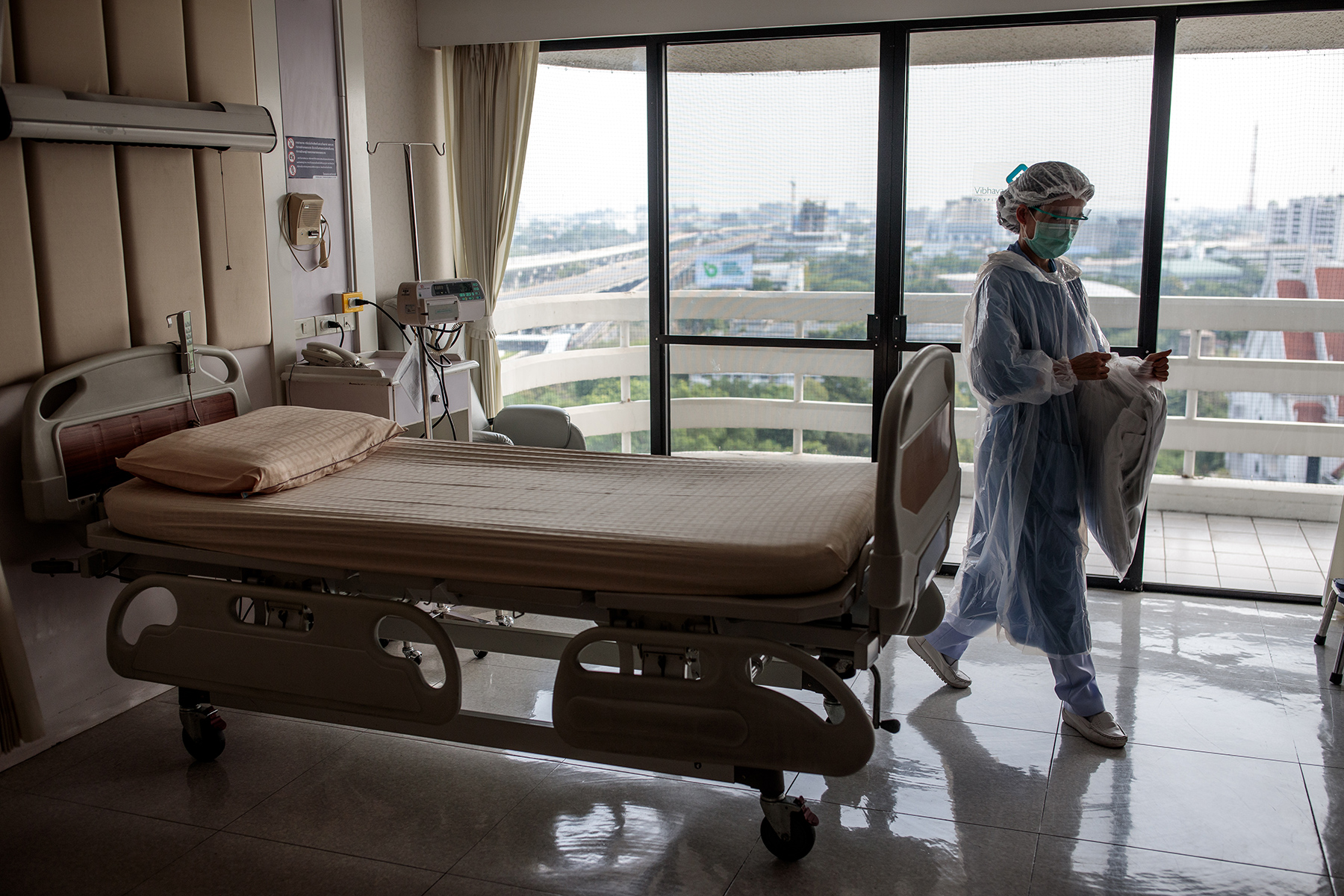
Private hospitals offer a range of individual rooms at various costs (usually shown on the hospital website), with air conditioning, TVs, private bathrooms (with soap and toiletries), a refrigerator, cutlery, plates, cups, and sometimes, a kitchenette. There are also English-speaking doctors and nurses and spaces for a visitor to sleep.
Private hospitals also have onsite coffee shops, restaurants, and shops. An overnight stay in a private hospital costs approximately ฿30,000. Critical care can cost from ฿100,000 per day in a private hospital.
Hospital costs in Thailand
Although Thai nationals can access low-cost or free public healthcare in hospitals, the situation for internationals is slightly different. Internationals who work and pay social security can access only a minimal amount of financial assistance, so most get health insurance or put aside savings for this purpose.
Most expats pay for hospital services, whether public or private. They can pay for the services upon discharge or at the cashier after collecting medication at the hospital pharmacy. An outpatient visit at a public hospital costs between ฿500 and ฿1,500. For a private hospital, prices range from ฿1,500 to ฿4,500.

Writer and local expert
Jane Evans
Insider tip
Since private hospitals are businesses, be on the look out for extra charges and unnecessary price mark-ups. Some private hospitals will not openly discuss costs before giving treatment, and some even request a credit card on admittance.
Health insurance for hospital costs
Depending on whether you have health insurance and what it covers, you may be able to claim part or all of the cost of hospital care in Thailand. Each policy is tailored to the insurance holder, so refer to your coverage and insurance provider for details of what you are covered for.
Health insurance providers offer a certain basic amount for inpatient/outpatient care, hospital accommodation (room or ICU), food, etc. Some policies pay reimbursement for money lost through sick leave. Others are basic and only cover some inpatient care.
Some insurance companies (ones that partner with specific hospitals) cover the cost of healthcare directly. Still, most expect you to pay upon discharge and then claim from the insurance company later. Furthermore, you may be directly covered for payment at certain hospitals but not others.
If you are working and have a social security card, you must pay upfront and request assistance later. Therefore, you need to know whether you should attend a specific hospital to gain the best insurance options. Some insurance packages offer freebies, such as influenza vaccinations for members. These insurance companies operate in Thailand:
All Thai nationals can access free services and treatment via public hospitals under the Universal Coverage Scheme (UCS). Private hospitals do not give discounts or exemptions.
Being discharged from a Thai hospital
When you are discharged from a Thai hospital, you will need to settle the bill before leaving unless you’re at a partner hospital that your insurance or social security covers. You will also receive any medications from the pharmacy and instructions on follow-up care.

Writer and local expert
Jane Evans
Insider tip
Make sure you have the correct insurance when attending a private hospital, as there have been cases where hospitals have not released bodies after death due to unpaid bills.
Upon discharge, you will be informed of any follow-ups required. This depends on the patient and could be a simple check-up appointment, wound dressing, physiotherapy, attending a specific clinic, or further treatment and consultation.
Visiting someone in a hospital in Thailand
In Thai government hospitals, visiting hours are between 11:00 and 20:00. Anyone can see a patient in the hospital, but only one visitor can stay overnight (if they can find a space on the floor to rest). However, there are not always seats available for visitors.

The visiting hours for private Thai hospitals vary and are usually quite flexible. You can visit (เยี่ยม yeeyum) patients in private rooms at any time during the day. Seats are provided for visitors, and there is often a sofa where they can sleep.
You can bring food, non-alcoholic drinks, books, toys, and flowers to a patient. You may need to wear a face mask inside the hospital and show your ID.
Which are the best hospitals in Thailand?
A Newsweek global survey listed the world’s top hospitals in 2022 based on data from more than 80,000 medical experts, key performance indicators, and patient experiences in 27 countries. The survey also listed the top hospitals in Thailand as follows:
- Bumrungrad International Hospital – A private hospital in Bangkok and one of the largest private hospitals in Southeast Asia. Score: 94.79%.
- Siriraj Piyamaharajkarun Hospital – The largest public hospital in Bangkok is operated by the Faculty of Medicine Siriraj Hospital of Mahidol University. Score: 90.24%.
- Bangkok Hospital – One of Thailand’s first private hospitals, with a chain of private hospitals throughout Thailand. Score: 88.42%.
- Ramathibodi Hospital – A public hospital in Bangkok run by The Faculty of Medicine Ramathibodi Hospital, Mahidol University, and one of Thailand’s most prestigious medical schools. Score: 82.83%.
- Samitivej Sukhumvit Hospital – A private hospital in Bangkok and part of Bangkok Dusit Medical Services (BDMS). Score: 82.82%.
Useful resources
- The Thai Ministry of Health (กระทรวงสาธารณสุข) (in Thai) – the governing body that oversees public health in Thailand
- National Health Security Office (NHSO) (สำนักงานหลักประกันสุขภาพแห่งชาติ สปสช) – the authority that manages the universal public healthcare service for Thai citizens
- Office of Insurance Commission (OIC) – a body that regulates the insurance industry in Thailand



